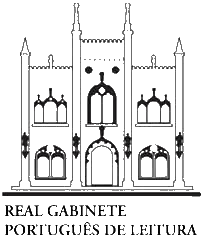On the short story as a canon of poetry: Eça, Machado and the aporias of modernity
DOI:
https://doi.org/10.37508/rcl.2024.nEsp.a1214Keywords:
short story, poetry, briefnessAbstract
If we set out to read Machado de Assis’ short story “Missa do Galo” (1893) and Eça de Queirós’ “Civilização” (1892) in the light of the short story’s categorical guidelines, we’ll see that the unquestionable modernity of Machado’s short narrative isn’t exactly recognisable in the Queirosian short story. In the old (but unquestionably modern) wake of Poe, Machado’s short story seeks to show why the narrative exercise is, in this literary genre, as necessary as it is disliked - because there is always a story to tell, but only its most visible face is told, the secret profile of which seems to prefer to retreat to the meaningful virtuality of an instant that then opens up to what transcends it in the possibility of meaning. For its part, Eça’s short story, published for the first time in 1892 in the Portuguese newspaper Gazeta de Notícias (and which would later become the matrix for the novel A cidade e as serras, published in 1901), does not embrace the discursiveness of the frame that shapes Machado de Assis’ short story, which is still profoundly modern today in its compositional defence of a brevity that cannot be measured according to the thread of logic dictated by number.
Downloads
References
ALDECOA, Ignacio. Opiniones de algunos autores sobre el cuento. In: BRANDENBERGER, Erna. Estudios sobre el cuento español contemporáneo. Madrid: Editora Nacional, 1973. p. 128-144.
AMAT, Nuria. Escribir cuentos (epílogo). In: MANSFIELD, Katherine. En la bahía. Buenos Aires: Editora Losada, 2003. p. 209-220.
ASSIS, Machado de. Missa do Galo. In: ASSIS, Machado de. Missa do Galo e outros contos. São Paulo: Editora Unesp, (2011 [1893]). p. 11-19.
BORGES, Jorge Luis. Prólogos con un prólogo de prólogos. Buenos Aires: Emecé, (1999 [1975]).
CORTÁZAR, Julio. Algunos aspectos del cuento. Cuadernos Hispanoamericanos. Madrid, n. 255, p. 403-416, mar. 1971. Disponível em: http://www.cervantesvirtual.com/nd/ark:/59851/bmc7w6w6. Acesso em: 10 mar. 2024.
GIBOUX, Audrey. Tradition, Modernité: un éternel retour? Préface. Comparatismes en Sorbonne, n. 1, p. 9-21, fev. 2010. Disponível em : https:// univ-rennes2.hal.science/hal-016203642. Acesso em: 10 mar. 2024.
HOYO, Arturo del. Opiniones de algunos autores sobre el cuento. In: BRANDENBERGER, Erna. Estudios sobre el cuento español contemporáneo. Madrid: Editora Nacional, 1973. p. 132-134.JORGE, Lídia. O signo da brevidade. In: JORGE, Lídia. Em todos os Sentidos. Lisboa: D. Quixote, 2020. p. 149-153.
LOPES, Adília. Fazer prosa, fazer rosa. Crónicas da Vaca Fria,[S. l.] 18 jun. 2001. Disponível em: https://arlindo-correia.com/adilia_lopes_fria. html#Fazer%20Prosa,%20Fazer%20Rosa. Acesso em: 10 mar. 2024.
MATUTE, Ana María. Opiniones de algunos autores sobre el cuento. In: BRANDENBERGER, Erna. Estudios sobre el cuento español contemporáneo. Madrid: Editora Nacional, 1973. p. 140-141.
MAY, Charles (2004). Why Short Stories are Essential and Why They are Seldom Read. ResearchGate, California State University, p. 1-14, jan. 2004. Disponível em: https://www.researchgate.net/publication/242233322_ Why_Short_Stories_Are_Essential_and_Why_They_Are_Seldom_ Read: Acesso em: 10 mar. 2024.
NOVALIS. Escritos escogidos. Edición de Ernst-Edmundo Keil e Jenaro Talens. Madrid: Visor, 2014. p. 103-123.
PATEA, Viorica (ed.). Short Story Theories. A Twenty-first-century Perspective. Amsterdam-New York: Editions Rodopi, 2012. DOI: https://doi.org/10.1163/9789401208390
PIGLIA, Ricardo. Teses sobre o conto. In: PIGLIA, Ricardo. Formas Breves. Trad. de José Marcos Mariani de Macedo. São Paulo: Companhia das Letras, 2004. p. 89-94.
PIWNIK, Marie-Hélène. Introdução. In: QUEIRÓS, Eça de. Contos I. Edição crítica de Marie-Hélène Piwnik. Lisboa: Imprensa Nacional-Casa da Moeda, 2009. p. 16-32.
POE, Edgard Allan. The Poetic Principle (1850). In: POE, Edgard Allan. Essays and Reviews. New York: The Library of America, 1984a. p. 71-94.
POE, Edgard Allan. Nathaniel Hawthorne. Twice-Told Tales (1842). In: POE, Edgard Allan. Essays and Reviews. New York: The Library of America, 1984b. p. 568-577.
POE, Edgard Allan. Nathaniel Hawthorne. Twice-Told Tales and Mosses from an Old Manse (1842). In: POE, Edgard Allan. Essays and Reviews. New York: The Library of America, 1984c. p. 577-588.
QUEIRÓS, Eça de. Civilização. In: QUEIRÓS, Eça de. Contos I. Edição crítica de Marie-Hélène Piwnik. Lisboa: Imprensa Nacional-Casa da Moeda, 2009 [1892]. p. 225-249.
QUIÑONES, Fernando. Opiniones de algunos autores sobre el cuento. In: BRANDENBERGER, Erna. Estudios sobre el cuento español contemporáneo. Madrid: Editora Nacional, 1973. p. 143.
SENA, Jorge de. Conto brevíssimo. In: SENA, Jorge de. Antigas e Novas Andanças do Demónio. Lisboa: Edições 70, 1984. p. 167-169.
SILVA, Vítor Aguiar e. O conto como escrita dialógica entre o modo narrativo e o modo lírico. In: SILVA, Vítor Aguiar e. Colheita de Inverno. Ensaios de Teoria e Crítica Literárias. Coimbra: Almedina, 2020. p. 273-289.
Downloads
Published
How to Cite
Issue
Section
License
Authors who publish in Convergência Lusíada agree with the following terms:
- Authors retain copyright and grant the journal right of first publication with the work simultaneously licensed under a Creative Commons Attribution-NonCommercial 4.0 International License (CC-BY-NC 4.0) that allows others to share the work with an acknowledgment of the work's authorship and initial publication in this journal.
- Authors may enter into separate, additional contractual arrangements for the non-exclusive distribution of the journal’s published version of the work (e.g., post it to an institutional repository or publish it in a book), with an acknowledgment of its initial publication in this journal.
- Authors are permitted and encouraged to post their work online (e.g., in institutional repositories or on their website) prior to and during the submission process, as it can lead to productive exchanges, as well as earlier and greater citation of published work.

Revista Convergência Lusíada is licensed under a Creative Commons - Atribuição-NãoComercial 4.0 Internacional.









